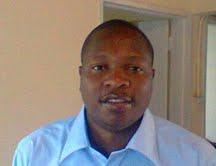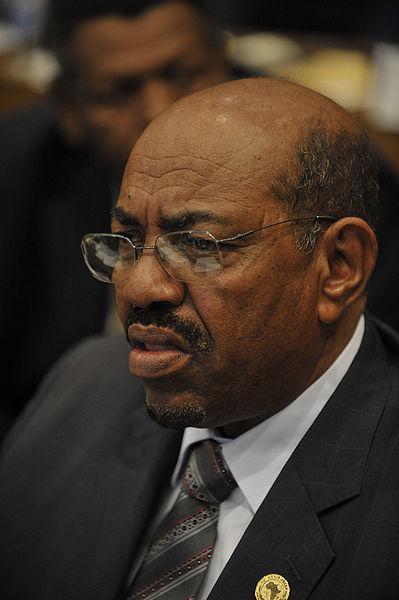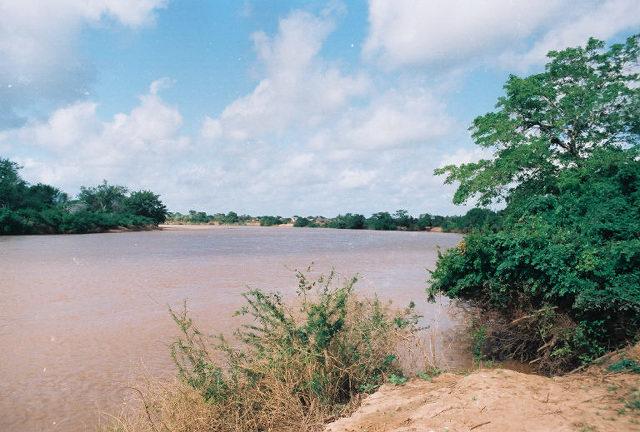“It’s our time to define our own destiny” Notes on Zimbabwean Independence Part II — by Clever Bere

The following originally appeared on the Zimbabwe Committee of the Peoples Charter blog on April 12, 2012. There are three papers in all, as the preface below states, to offer the views of a younger generation of Zimbabwean intellectuals on the meaning of Independence and democracy. This discussion is important for rethinking Zimbabwe. TS
Brief Preface:
The three essays cover three topics, national historical consciousness, reflections of young Zimbabweans on the meaning of independence and tracing the fading democratic value of leadership in Zimbabwe. The essays vary in length and are essentially individual reflections of Zimbabweans. The electronic publication of these essays has been facilitated by the Zimbabwe Committee of the Peoples Charter.
Kind regards,
Committee of the People’s Charter.
It’s our time to define our own destiny.
By Clever Bere
On the 18th of April 2012, our country will be celebrating her 32ndAnniversary. If it was a human being, the country would have reached adulthood, be able to fend for him/herself, expected to or already having fathered or mothered, and able to decide what is right or wrong. With a human being this process of decision making, growth and so forth is influenced by relatively fewer forces. It is different when it is applied to a state or a country.
Consequences of decisions made by those in national political authority have far reaching consequences on their people, the current generation and those to come. As in societal families if a previous generation has not invested in the future of those to come, its mistakes weigh heavily on generations to come. I am saying this mindful of the fact that as with a human families, a country can face constraints associated with pursuing the right track towards development and success for the benefit of posterity. It is therefore of fundamental importance for careful thought to be applied when making such decisions that have such far reaching consequences.
I am authoring this piece under particularly complex circumstances for young people in Zimbabwe. On the one hand, these seem to be really exciting times for youths and prospects for youth development and empowerment in 32 years of our national independence. This is especially so when one listens to the rhetoric that has been espoused by our contemporary leaders in the country and on the continent at large regarding youth empowerment. On the other hand real challenges seem to continue to mount on the youths in Zimbabwe, Africa and globally due to spiraling unemployment, lack of vocational skills training, universal access to t education, access to capital and opportunities, lack of access to health services including those related to diagnosis, treatment, and care of those living with HIV and, above all, prevention of new HIV infections among the youths.
To be specific to Zimbabwe, the issue of political patronage of the youth has compounded matter further. Indeed for one to survive as a young person in the country, one has to tow a certain political line. Failure to tow the political line is associated with persecution, victimization and exclusion. Cases of this treatment to young leaders who would have dared to stand their ground and speak the truth, only to face the music are numerous (even this author is also a victim). This is not in any way implying, as has been said in some spaces, that the author is a bitter-man, disgruntled and so forth. He is not.
This persecution does not apply to Zimbabwe alone; we have also witnessed and followed with keen interest the consented, sustained and vicious attack on the youth leadership of the Africa National Congress (ANC) in South Africa, with its president being the major victim. Malema might not be the best of young leaders on the continent and I seek not to defend him, but I will sympathize with him for as long as he is youth leader with a constituency that voted for him and that continue to support him, simply that.
The process of young people claiming their birthright to define their future has however dawned upon us all. This is particularly in the wake of evidence of the exclusion of young people in mainstream policy making processes via riots and demonstrations in Egypt, Tunisia, the United Kingdom and the Occupy Wall Street movement of the United States. Zimbabwe is in no way an exception as we approach our 32nd anniversary of our national independence. Unless young people are taken with greater seriousness, it is for every political, business and social player to realize that the youth of Zimbabwe, Africa and the World are most likely to rebel. As a matter of fact, the rebellion has already began; a rebellion against patronage, a rebellion against corrupt leadership, a rebellion against manipulation and indeed a rebellion against poverty. Yes we say no to dictatorship in all its from, subtle or blatant.
All this is happening during a very historic period in the quest for youth development in the country and on the continent. The continent’s leadership adopted African Youth Decade 2009-2018 Plan of Action forAccelerating Youth Empowerment for Sustainable Development as theRoad Map towards a multi-sectoral and multi-dimensional engagement of all stakeholders towards the achievement of the goals and objectives of the African Youth Charter. Indeed it is a charter to which the Zimbabwean government is signatory and which was a milestone step meant to bring Zimbabwean and African stakeholders to address the challenges of young people in the country and on the continent.
Unfortunately there are deficiencies particularly around the crafting of the Plan of Action. Very few young people were involved, consulted and are aware of the existence of the Plan of Action and the Charter itself. Its implementation is driven by the older generations that has left us more miserable that we were twenty years ago, that generation we are rebelling against. And yes we must rebel. Even the very same older generation indeed realize that, and to quote the words of one African statesman, former president of South Africa Thabo Mbeki,
” It (youth) must organise and ready itself to constitute itself into a rebellion because it would obviously be unnatural that I, a member of the older generation, would easily and willingly accept that younger people, my own children, should, at best, sit side-by-side with me as co-leaders, fully empowered to help determine the future of our people.[xxii]”
Yes young people must have a strong say in the determination of the future or our country. We have learnt that, over the past thirty two years, the political leadership in particular but also leadership in business and society have been so selfish and curtailed the development of young people.
The Zimbabwe People’s Charter is clear in as far as answering what needs to be done. Regarding the youth, the charter acknowledges that
” young people represent the present and the future of our country and that all those in positions of leadership nationally and locally must remain true to the fact that our country shall be passed on from one generation to the next. The charter further state that, in order for each generation to bequeath to the next a country that remains the epitome of hope, democracy and sustainable livelihoods, the following principles for the youth must be adhered to and respected:
The youth shall be guaranteed the right to education at all levels until they acquire their first tertiary qualification.
The youth shall be guaranteed an equal voice in decision-making processes that not only affect them but the country as a whole in all spheres of politics, the national economy and social welfare.
The youth shall be guaranteed access to the right to health.
The youth shall not be subject to political abuse through training regimes that connote political violence or any semblance of propaganda that will compromise their right to determine their future as both individuals and as a collective.
The youth have the right to associate and assemble and express themselves freely of their own prerogative.[xxii]”
Past and present developments have shown us that this cannot be achieved on a silver plate, thus the relevance of a rebellious approach. The young people of Arab world have rebelled in their way, providing inspiration to young people across the world. The occupy-wall-street despite its limited media coverage by the biased international media is a significant rebellion against global capital.
The Zuma-Malema saga further shows us that young people also have the capacity to stand their ground. We have done the same here and will continue to do so. Yes young people have started to speak out on the manner in which empowerment funds are being disbursed. We continue to speak against the gross injustices in the workplace. And we will speak against the continued looting of our natural resources, through the unholy alliance and tag team of global capital and the selfish political elite to which we will not be far from the truth if we would based on their conduct label them unpatriotic.
However one major obstacle impeding on young people’s ability to achieve results has been the disunity in our youth’s movement. Of cause in some way this disunity is because of the hand of the older generation. As the Youth Committee of the Committee of the People’s Charter we are of the reality that unless we come together as young people, define our agenda and pursue it we will remain living at the mercy of the political and business elites. To buttress my point, I will borrow the influential statement made by that great thinker and proponent of human liberation, Frantz Fanon, many years ago – that
“Each generation must, out of relative obscurity, discover its mission, fulfil it or betray it.”
We were not in the front not because we are cowards, not because we are less patriotic; it is simply because we were not yet born. This doesn’t mean in anyway that we do not appreciate the sacrifices of the gallant sons and daughters who, shoulder to shoulder with the peasants, the workers and all Zimbabweans in the country and abroad, to liberate the country.
For that we appreciate and remain grateful, for it was a worthy cause. The fact that we were not there in 1999 when the real opposition to ZANU PF, MDC was formed does not mean we are cowards either. It is just that we were too young to be there. The equally recognize the work done by the MDC in trying to bring democracy to the country. Every moment however has its leaders, with a different agenda and mandate, whether you fulfill it or betray it, your time will come to pass and other generations will come.
Our time has come and we will define our mission and we will fulfill it.
It is our right to enjoy the benefits of independence.
Happy 32nd anniversary Zimbabwe. Uhuru.
Clever Bere can be contacted on [email protected]
i) Thabo Mbeki Address at the UNDP-UN Habitat 21 Global Youth Leadership Forum on Inclusive Governance NAIROBI, KENYA; MARCH 17, 2012. TASKS OF THE YOUTH OF THE WORLD.
ii) Zimbabwe People’s Charter adopted Feb 2008.





